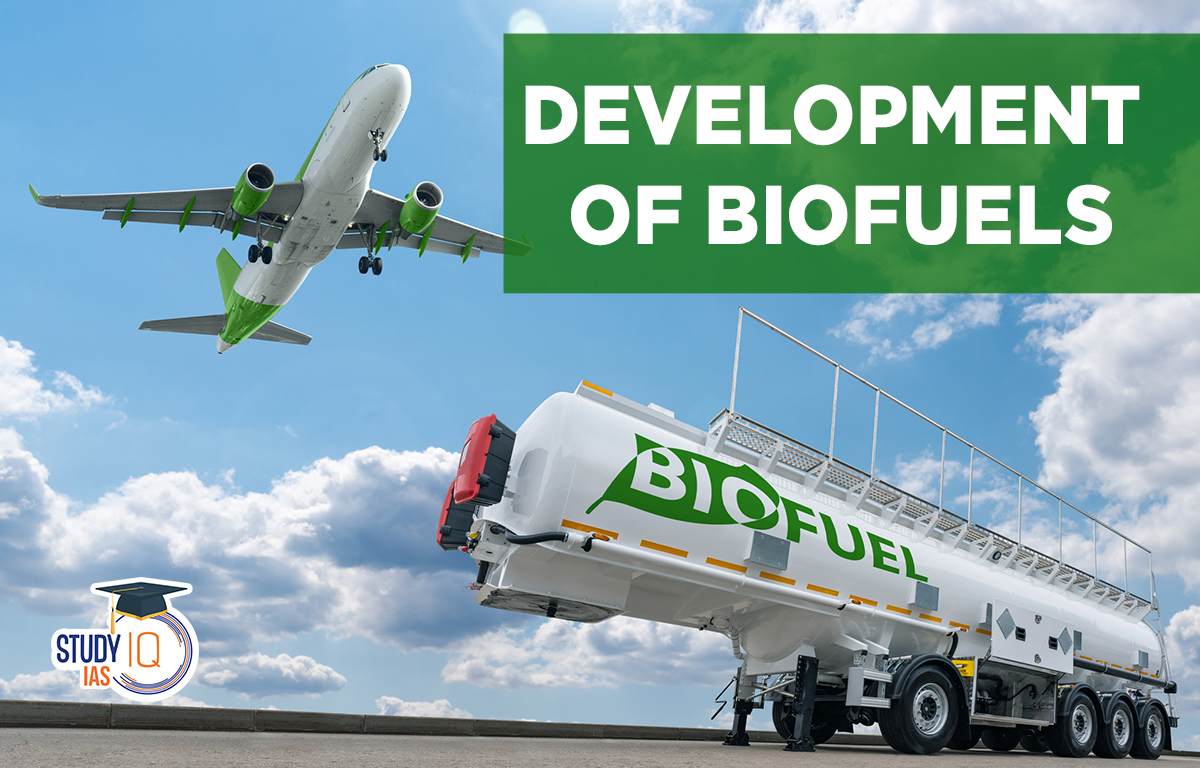Table of Contents
Context: India, during its Presidency of G20, is emphasizing on International Collaboration for energy security and enhanced development of emerging fuels like biofuel and hydrogen.
What are Biofuels?
- Any hydrocarbon fuel that is produced from an organic matter in a short period is considered a biofuel.
- They may be solid, such as fuelwood, charcoal and wood pellets; liquid, such as bioethanol and biodiesel; or gaseous, such as biogas.
- Key drivers: Rising oil prices, greenhouse gas emissions from fossil fuels and agricultural income diversification are some of the key drivers of the switch to biofuels.
- Categories of biofuels:


Government Initiatives for the Development of Biofuels in India
- National Policy on Biofuels, 2018: It was notified by the Ministry of Petroleum and Natural Gas in 2018.
- Ethanol Blended Petrol (EBP) programme: It seeks to achieve blending of Ethanol with Petrol with a view to reduce pollution, conserve foreign exchange and increase value addition in the sugar industry.
- Recently, the union government advanced the target of making petrol with 20 per cent ethanol by five years to 2025.
- In the last seven-eight years, the country has saved Rs 50,000 crore in forex outflows by blending ethanol with petrol.

- Mission Integrated Bio-refineries: The Mission is Co-led by India and the Netherlands and announced during the UNFCCC’s COP26 at Glasgow.
- Integrated biorefineries employ combinations of feedstock and conversion technologies to create a variety of co-products and biofuels.
- The 2019 Pradhan Mantri JI-VAN (Jaiv Indhan – Vatavaran Anukool fasal awashesh Nivaran) Yojana: The program’s goals are to foster an environment for the development of business ventures and to advance R&D in the 2G ethanol market.
- GOBAR (Galvanizing Organic Bio-Agro Resources) DHAN scheme, 2018: Launched under Swachh Bharat Mission (Gramin), it focuses on managing and turning solid farm waste, like as animal dung, into compost, biogas, and bio-CNG, which helps keep villages clean and boosts the income of rural people.
- Repurpose Used Cooking Oil (RUCO): RUCO launched by the Food Safety and Standards Authority of India (FSSAI) aims for an ecosystem that will enable the collection and conversion of used cooking oil to biodiesel.
StatsIQ:
- India’s current ethanol production capacity stands at an approx. 900 crore liters per annum.
- Currently, Ethanol makes up 10% of the petrol we use in our vehicles. It requires a 1,000 crore litre capacity to achieve the desired 20% ethanol blend in petrol by 2025.
- As per a recent study sponsored by MNRE, the current availability of biomass in India is estimated at about 750 million metric tonnes per year.


 Accredited Social Health Activists (ASHA...
Accredited Social Health Activists (ASHA...
 World’s 1st Unique Q-Shield Platform a...
World’s 1st Unique Q-Shield Platform a...
 IB ACIO Recruitment Notification 2025 Ex...
IB ACIO Recruitment Notification 2025 Ex...





















